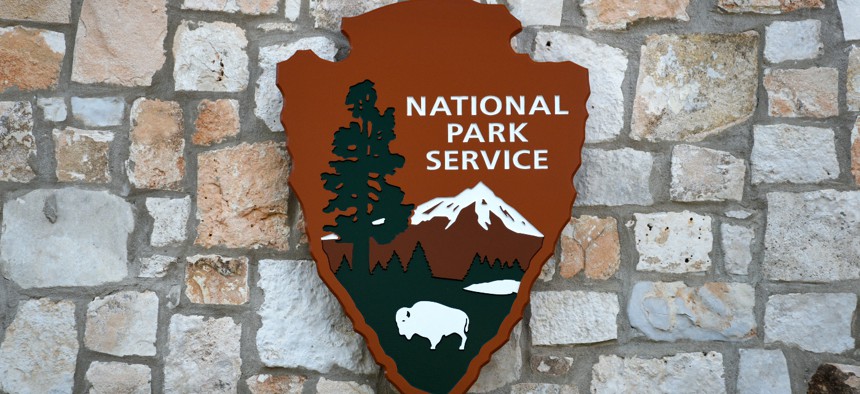Digital park passes could become reality under a new legislative proposal

Robert Alexander/Getty Images
The new, bipartisan recreation-focused package is aimed at cutting red tape around national parks and public land, its backers say.
A bipartisan package focused on outdoor recreation would task the government with creating a digital version of its popular park pass series that could be stored on mobile devices by 2026.
Introduced Wednesday, the Expanding Public Lands Outdoor Recreation Experiences Act, or the EXPLORE Act, is backed by the chair and ranking member of the House Committee on Natural Resources — Reps. Bruce Westerman, R-Ark., and Raúl Grijalva, D-Ariz., respectively — along with an additional 17 cosponsors.
At a Thursday hearing on the bill, the top Democrat on the Subcommittee on Federal Lands, Rep. Joe Neguse, D-Colo., called the package “the product of years of hard work” with provisions from Republicans and Democrats.
This isn’t the first time lawmakers have sought to require the government to make a digital version of its America the Beautiful park pass, a program that includes several different physical, plastic passes for entrance to federal recreational sites with their own prices and eligibility requirements.
A similarly-focused Senate package called America’s Outdoor Recreation Act, which passed out of the Senate Energy and Natural Resources Committee in July, also included a provision prodding the government to go digital with the pass.
The National Park Service itself has been looking into digitizing the pass as part of its efforts to streamline and simplify the program. It put out a request for information to interested vendors this spring that detailed potential challenges with implementation. A digital pass would have to work across a diverse set of parks and conditions, including places with little or no internet connectivity and low staffing levels. Funding is another expected challenge.
If the latest proposal were to pass, federal agencies would also be encouraged to work with state and local officials to set up a way for outdoor enthusiasts to buy their federal, state and local passes in one transaction.
The new House package contains a slew of other provisions lawmakers say are meant to help the United States fully tap into an outdoor recreation economy that generates $1.1 trillion for the U.S., according to Commerce Department data.
“The central theme of the EXPLORE Act is improving access,” said subcommittee chair Tom Tiffany, R-Wis. during the hearing. “The EXPLORE Act expands access not by spending trillions, millions of dollars or creating complex new programs, but by reducing red tape and cutting bureaucracy.”
The package includes several provisions its backers say would address clunky permitting processes required for commercial guides and outfitters on federal lands, such as a requirement for agencies to pilot joint permits for trips that cross jurisdictional boundaries. Agencies would also be required to offer online applications and look for ways to simplify the issuance process.
The proposal would also require a new, single visitation data reporting system for recreational lands and waters and a two-year pilot program to share real-time and predictive data on visitation.
The Interior Secretary would be required to report on where national parks have the greatest needs for broadband internet access and cellular service and develop a plan to use public-private partnerships to get that access.
The package also includes proposals meant to increase access to parks among young Americans, people with disabilities and veterans, in addition to others focused on gateway communities around parks and more.
During the hearing, Michael Reynolds, deputy director for congressional and external relations at the National Park Service, said the bureau has had concerns about some of the provisions that have previously been introduced and would provide additional recommendations and comments to the committee. Reynolds also called the proposal “an important opportunity to support [the] goals” of the bureau “to provide outstanding recreational opportunities balanced with the need to preserve and protect the incredible resources the land management bureaus were established to steward.”
NEXT STORY: USDA unveils new data strategy






